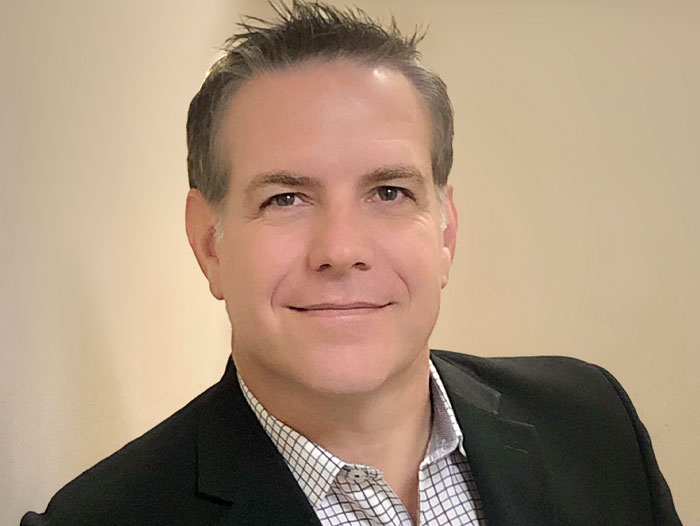WinCup Chief Executive Officer Brad Laporte Appointed to New Jersey Plastics Advisory Council
February 11, 2025 | 4 min to read
ATLANTA, Ga. — Brad Laporte, CEO of WinCup, was appointed by Governor Phil Murphy to New Jersey’s Plastics Advisory Council, focusing on the "Get Past Plastic" law aimed at reducing single-use plastics. Laporte expressed his commitment to environmental sustainability through WinCup's innovative products like phade® straws, which biodegrade in months. His leadership has driven the company to replace over two billion single-use plastics and engage in projects like coral reef restoration, marking a significant step toward a sustainable future.

ATLANTA, Ga. — WinCup, a leading national manufacturer of disposable food service products, announced that its Chief Executive Officer, Brad Laporte, has been appointed to New Jersey’s Plastics Advisory Council (PAC) by Governor Phil Murphy. The PAC consists of sixteen appointed members dedicated to monitoring the implementation and effectiveness of the “Get Past Plastic” law. Signed into law by Governor Murphy on November 4, 2020, this landmark legislation aims to reduce single-use plastic waste and promote environmental sustainability across New Jersey.
“I am honored to serve on the New Jersey Plastics Advisory Council, as the mission of the PAC aligns closely with the values upheld by WinCup,” says Brad Laporte, CEO of WinCup, Inc. “At WinCup, we are deeply committed to environmental sustainability and product integrity. This commitment is reflected in our investments in proven biodegradable solutions like our phade® brand of PHA products and Vio® foam, both of which are recognized for their user- and eco-friendly qualities. We aim to reduce environmental degradation by replacing as many single-use plastics as possible with our home and industrial compostable and marine biodegradable food service products, paving the way for a cleaner and healthier future for all. With this appointment, I look forward to working with like-minded experts to ensure a more sustainable future for New Jersey.”
Laporte leads a company at the forefront of innovative alternative solutions to plastic use, leveraging groundbreaking science to revolutionize the way the food service industry thinks about sustainability. phade® straws – crafted from a biopolymer known as PHA (polyhydroxyalkanoate) derived from fermented canola oil – maintain the feel and user experience of traditional plastic straws but boast an incredible promise: they will safely biodegrade, returning to nature within months.
phade® has become popular among consumers, major restaurant chains, hospitality brands, professional sports venues, airports, colleges and universities, and retail stores nationwide. The WinCup brand recently captured global attention for its remarkable role in coral reef restoration efforts in Florida thanks to phade’s proven marine biodegradability. In the past year, phade® also celebrated officially replacing over two billion harmful, single-use, petroleum-based plastic and paper straws.
“Brad Laporte has demonstrated a commitment to building a more sustainable food service industry and eliminating single-use plastics by innovating for the future,” said Governor Murphy. “I’m proud to appoint him to New Jersey’s Plastics Advisory Council, which works hard to eliminate plastic pollution and improve our state’s environment for future generations.”
Laporte boasts more than two decades of experience in operations, engineering, manufacturing and sustainability knowledge. Laporte earned his Bachelor of Science in Mathematics from the University of Windsor in Ontario, Canada.
Giving consumers and businesses an environmentally superior, innovative, and affordable straw option inspired Los Angeles-based Atar Capital to acquire WinCup in 2020. The global private investor saw tremendous promise in WinCup’s commitment to developing PHA for the marketplace, a projection that has proven accurate as phade® approaches the three billion straw milestone.
About WinCup, Inc.
WinCup, Inc. is headquartered in Atlanta, Georgia, and is a leading manufacturer of traditional and Eco-Friendly disposable cups, bowls, containers, lids, and straws. The company’s eight manufacturing locations across the U.S. are committed to high-quality products and superior customer service. To learn more, please visit www.wincup.com.
About New Jersey Plastic Advisory Council (PAC)
The PAC is charged with monitoring the implementation of the “Get Past Plastic” Law and evaluating its effectiveness in reducing single-use plastics and plastic waste in the State. The PAC is required to report on the implementation and effectiveness of the law and provide recommendations for legislative or administrative action to improve the implementation or effectiveness of the law.
